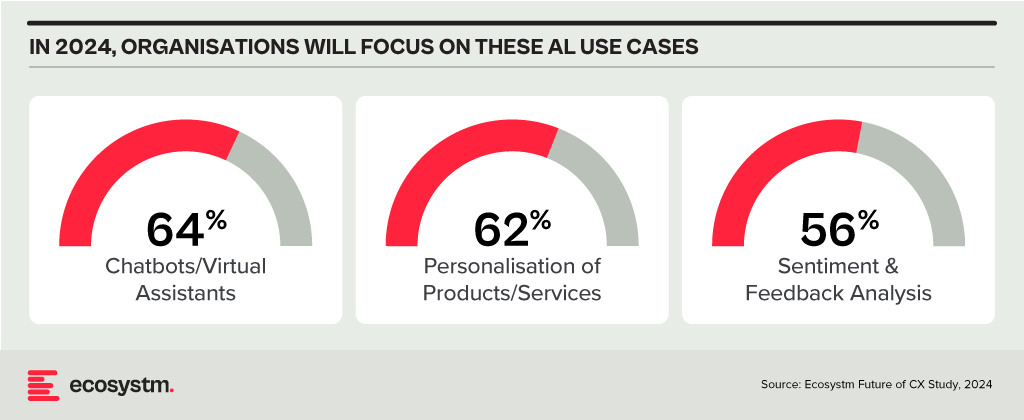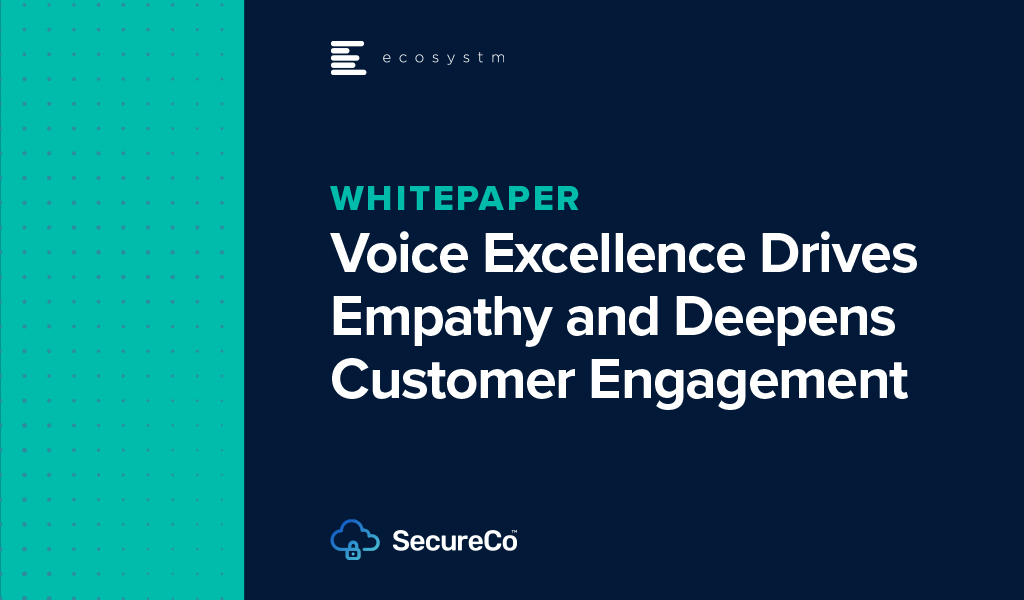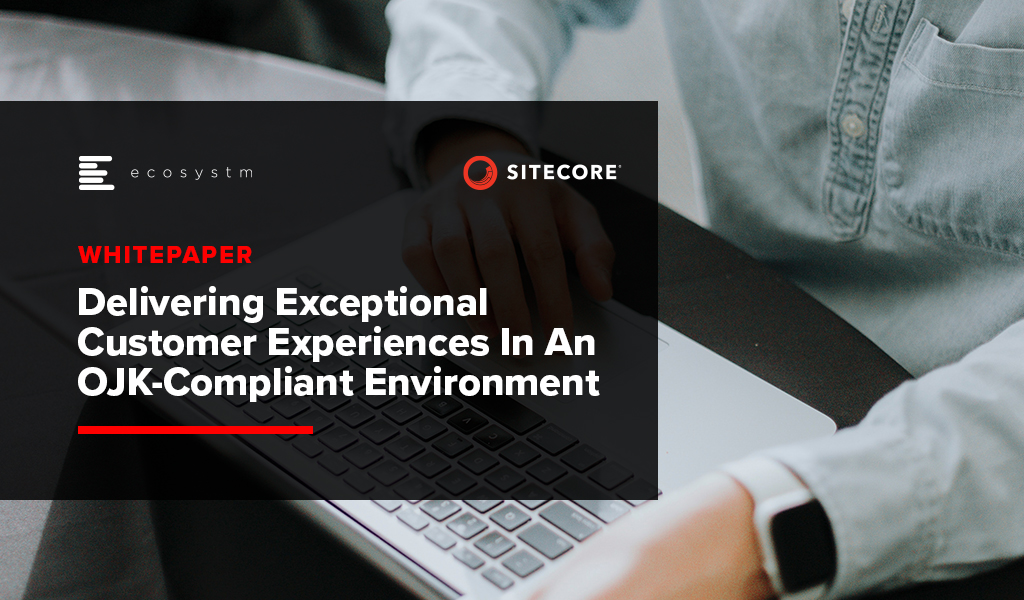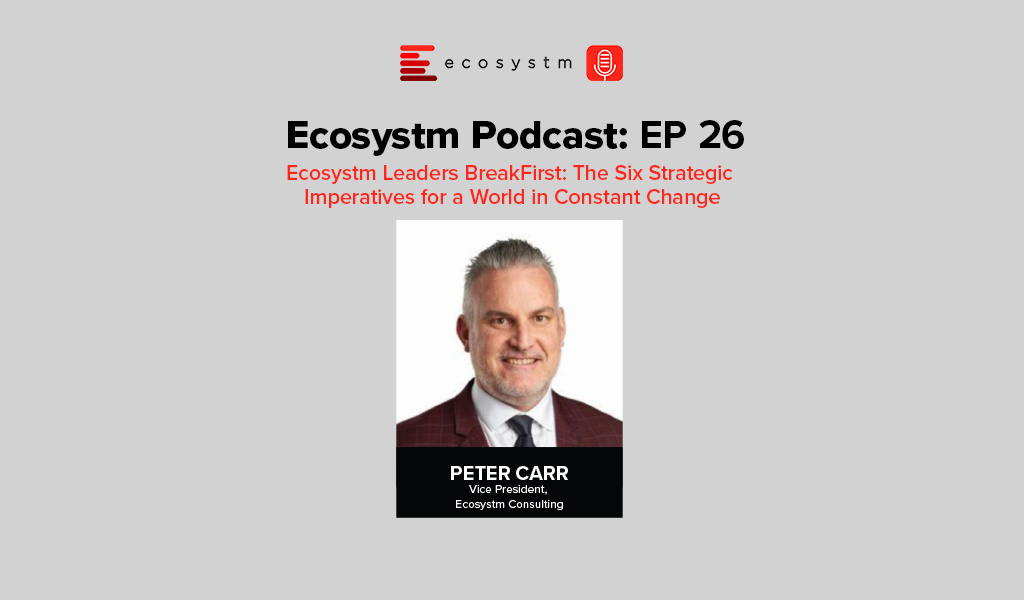
In today’s competitive business landscape, delivering exceptional customer experiences is crucial to winning new clients and fostering long-lasting customer loyalty. Research has shown that poor customer service can cost businesses around USD 75 billion in a year and that 1 in 3 customers is likely to abandon a brand after a single negative experience. Organisations excelling at personalised customer interactions across channels have a significant market edge.
In a recent webinar with Shivram Chandrasekhar, Solutions Architect at Twilio, we delved into strategies for creating this edge. How can contact centres optimise interactions to boost cost efficiency and customer satisfaction? We discussed the pivotal role of voice in providing personalised customer experiences, the importance of balancing AI and human interaction for enhanced satisfaction, and the operational advantages of voice intelligence in streamlining operations and improving agent efficiency.
The Voice Advantage
Despite the rise of digital channels, voice interactions remain crucial for organisations seeking to deliver exceptional customer experiences. Voice calls offer nuanced insights and strategic advantages, allowing businesses to address issues effectively and proactively meet customer needs, fostering loyalty and driving growth.
There are multiple reasons why voice will remain relevant including:
- In many countries it is mandatory in several industries such as Financial Services, Healthcare, & Government & Emergency Services.
- There are customers who simply favour it over other channels – the human touch is important to them.
- It proves to be the most effective when it comes to handling complex and recurrent issues, including facilitating effective negotiations and better sales closures; Digital and AI channels cannot do it alone yet.
- Analysing voice data reveals valuable patterns and customer sentiments, aiding in pinpointing areas for improvement. Unlike static metrics, voice data offers dynamic feedback, helping in proactive strategies and personalised opportunities.
AI vs the Human Agent
There has been a growing trend towards ‘agentless contact centres’, where businesses aim to pivot away from human agents – but there has also been increasing customer dissatisfaction with purely automated interactions. A balanced approach that empowers human agents with AI-driven insights and conversational AI can yield better results. In fact, the conversation should not be about one or the other, but rather about a combination of an AI + Human Agent.
Where organisations rely on conversational AI, there must be a seamless transitioning between automated and live agent interactions, maintaining a cohesive customer experience. Ultimately, the goal should be to avoid disruptions to customer journeys and ensure a smooth, integrated approach to customer engagement across different channels.
Exploring AI Opportunities in Voice Interactions
Contact centres in Asia Pacific are looking to deploy AI capabilities to enhance both employee and customer experiences.

Using predictive AI algorithms on customer data helps organisations forecast market trends and optimise resource allocation. Additionally, AI-driven identity validation swiftly confirms customer identities, mitigating fraud risks. By automating transactional tasks, particularly FAQs, contact centre operations are streamlined, ensuring that critical calls receive prompt attention. AI-powered quality assurance processes provide insights into all voice calls, facilitating continuous improvement, while AI-driven IVR systems enhance the customer experience by simplifying menu navigation.
Agent Assist solutions, integrated with GenAI, offer real-time insights before customer interactions, streamlining service delivery and saving valuable time. These solutions automate mundane tasks like call summaries, enabling agents to focus on high-value activities such as sales collaboration, proactive feedback management, and personalised outbound calls.
Actionable Data
Organisations possess a wealth of customer data from various touchpoints, including voice interactions. Accessing real-time, accurate data is essential for effective customer and agent engagement. Advanced analytics techniques can uncover hidden patterns and correlations, informing product development, marketing strategies, and operational improvements. However, organisations often face challenges with data silos and lack of interconnected data, hindering omnichannel experiences.
Integrating customer data with other organisational sources provides a holistic view of the customer journey, enabling personalised experiences and proactive problem-solving. A Customer Data Platform (CDP) breaks down data silos, providing insights to personalise interactions, address real-time issues, identify compliance gaps, and exceed customer expectations throughout their journeys.
Considerations for AI Transformation in Contact Centres
- Prioritise the availability of live agents and voice channels within Conversational AI deployments to prevent potential issues and ensure immediate human assistance when needed.
- Listen extensively to call recordings to ensure AI solutions sound authentic and emulate human conversations to enhance user adoption.
- Start with data you can trust – the quality of data fed into AI systems significantly impacts their effectiveness.
- Test continually during the solution testing phase for seamless orchestration across all communication channels and to ensure the right guardrails to manage risks effectively.
- Above all, re-think every aspect of your CX strategy – the engagement channels, agent roles, and contact centres – through an AI lens.







